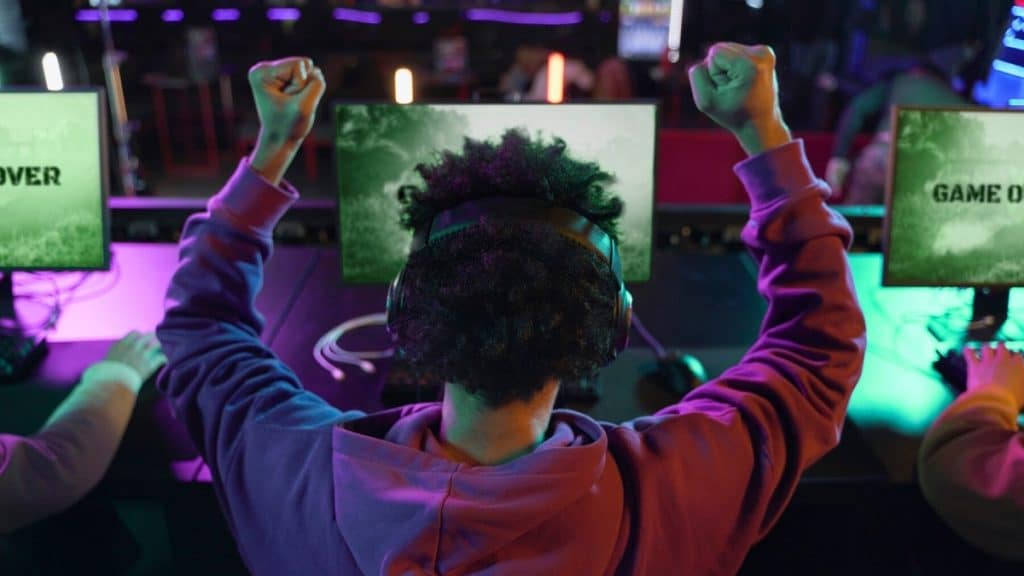Esports tournaments have absolutely exploded in popularity over the last decade. Driven by live streaming, increased prize pools and growing viewership, competitive gaming events are now a massive industry in their own right. Their growth has significantly influenced gaming habits and culture.
Viewership and Prize Pools Skyrocket
Back in 2012, around 8.2 million people watched the League of Legends Season 2 World Championship finals. Fast forward to 2022, and the League of Legends World Championship peaked at over 74 million concurrent viewers. Over just a ten year span, viewership has increased by over 800%.
Alongside massive growth in viewers, prize pools have similarly ballooned to unprecedented levels. In 2012 the Dota 2 International had a total prize pool of $1.6 million dollars. Now in 2024, the prize pool at FanDuel sportsbook reached over $50 million, a thirty-fold increase. This trend repeats across multiple esports titles.
Esports Industry Revenue Soars
Fueled by these trends, total esports industry revenue skyrocketed from just $130 million in 2012 to over $1.38 billion in 2024. Goldman Sachs projects it may reach $3 billion by 2027.
| Year | Total Esports Revenue | Year-Over-Year Growth |
| 2012 | $130 million | N/A |
| 2022 | $1.38 billion | +26% |
| 2027 | $3 billion (projected) | N/A |
Mainstream Recognition
With extraordinary growth in viewership, prize money and revenue, esports have entered the mainstream. Top tournaments air on broadcast television networks like ESPN. Top gaming celebrities like Ninja have over 50 million followers across social media. Esports teams have multi-million dollar sponsorship deals with Toyota, Red Bull and other Fortune 500 brands.
College scholarships for gamers now exist too. Over 200 US colleges have varsity esports programs, and many offer over $8 million in scholarships annually. Esports are now a recognized career path for talented gamers.
Surging Participation Rates
Beyond viewership, more people now play competitive games too. A 2022 study showed over 200 million people play Clash of Clans daily, up from 70 million daily players in 2017. Participation in multiplayer online battle arena (MOBA) games like League of Legends has surged as well, nearly doubling from 2015-2022.
The popularity of live streaming competitive gameplay on Twitch and YouTube has made gaming far more social too. Top streamers like Shroud have over 50,000 live viewers daily. The social ecosystem around gaming grows more robust yearly.
Habits Shift Dramatically
With gaming tournaments, streaming and esports athletes now in the mainstream, gaming habits have dramatically shifted, especially among teenagers and young adults.
Multiplayer gaming has become far more common compared to single player games. Developing skill and climbing ranked ladders is now a key motivator alongside fun and social interaction. Many gamers have become far more competitive generally.
Teenagers model their gaming habits after top streamers and esports stars. Their game selections, play schedules, purchases and friend circles are heavily influenced by popular streamers and competitions.
Gaming Disorder Concerns
However several mental health experts have raised concerns around excessive gaming and “gaming disorder.” As gaming becomes more competitive and social, some vulnerable individuals may become almost addicted to multiplayer games, esports betting and live streaming.
Symptoms may include withdrawal when unable to play, decreased interest in offline activities, and continuing to game despite negative consequences. Estimates suggest gaming disorder may impact between 0.7% to 15% of regular gamers.
While gaming itself is not universally harmful, overuse may indicate deeper personal issues. Parents should set reasonable limits around gaming, and watch for falling academic performance or changes in mood. Moderation and balance remains key.
Bottom Line
Esports tournaments have clearly impacted gaming habits significantly since 2012. More gamers focus on competitive multiplayer titles rather than single player experiences. They watch gaming celebrities for inspiration. Gaming itself has become a far more social activity generally.
Risks like gaming disorder may emerge as well. Ultimately moderation remains essential for healthy gaming habits as tournaments, streaming and esports continue growing at staggering rates yearly.
